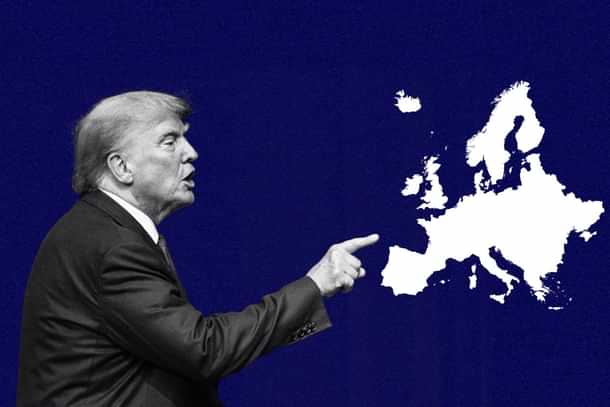Foreign Affairs
Europe’s Right Is Celebrating Trump’s Victory, But The Party May Not Last Long
Bhaskar Majumdar
Nov 15, 2024, 02:10 PM | Updated 03:59 PM IST
Save & read from anywhere!
Bookmark stories for easy access on any device or the Swarajya app.


I was in the United States for two months leading up to the November 5 presidential elections, in New York and Palo Alto, with travels across Texas, Florida, Georgia, and other places. It was supposedly a close contest as predicted by the mainstream media, but the result is there for all of us to see.
I think this is a seminal election, with a far-reaching impact greater than any other US election in recent times. This hopefully marks the end of left-liberal wokeism, which has permeated all aspects of Western liberal democracy.
The US was the quintessential epitome of meritocracy but had become a society where meritocracy was sacrificed at the altar of DEI (diversity, equity, and inclusion).
Open borders and illegal immigration had a deep impact on the local populace. Big government, with the Fed running huge debt, skyrocketing inflation, and the anti-Israel Islamist protests, were factors that strongly affected American voters. This led to the large-scale sweep of the Trump-led Republican Party across the Presidency, the popular vote, the Senate, and even the House of Representatives.
But all the above macro factors that affected this cataclysmic change in the US are also prevalent in Western Europe. The big question is: Will Europe be able to make the necessary changes like the US has done?
European nationalist and populist groups view the potential return of Donald Trump to the US presidency as a much-needed reinforcement.
Figures like Hungarian Prime Minister Viktor Orban, who has faced criticism from the European Commission and Biden administration for allegedly eroding “democratic standards,” see Trump’s reemergence as a pivotal moment that could shift global politics. Orban celebrated Trump’s win as a turning point, while Geert Wilders of the Netherlands' Freedom Party echoed similar sentiments, portraying Trump’s victory as a blow to “globalists” and a win for nationalistic ideals.
Across Europe, nationalist parties supportive of Trump have gained ground. Nationalist-populist movements recently secured the most votes in Austria and the Netherlands. Germany’s Alternative for Germany (AfD) is currently polling in second place ahead of their general elections, while France's Rassemblement National is closing in on broader political influence. Other parties, like Reform UK, Poland's Law and Justice, Spain’s Vox, and Italy’s Brothers of Italy, either hold power or are near it.
Europe’s far-right shares commonalities with Trump's Make America Great Again or MAGA movement, focusing more on ending the war in Ukraine and not unilaterally blaming Russia for the conflict, while strongly supporting Israel.
The anti-globalist, anti-World Economic Forum agenda often embraces certain conspiracy theories, particularly regarding vaccines. They believe, often with justification, that George Soros and his ecosystem are constantly working to weaken them. They are vocal about the demographic “replacement” of European populations by African and Arabic migrants.
If Trump pursues plans to deport undocumented migrants en masse, European populists may call for similar actions. Austria’s Freedom Party leader Herbert Kickl, for example, has advocated for the "remigration" of residents who fail to align with Austrian values.
These groups are also united in their opposition to “woke” ideologies. Trump's campaign ads addressing transgender issues resonate with figures like Orban, who banned gender studies in Hungary. Many of these leaders in Europe also admire Putin for his perceived strength and traditional conservative values, with Orban seeing Trump’s win as a boost for those seeking peace in Europe.
Despite these shared themes, an alliance between a Trump administration and European populist movements may not be entirely stable. Trump’s “America First” policies could clash with European populist interests.
For instance, his push to open European markets to US agricultural products, like hormone-treated beef, would likely face strong resistance from European farmers and fuel anti-American sentiment within European far-right circles, particularly in France and Germany. Additionally, any proposed tariffs on European imports could strain these ties.
Moreover, Trump’s potential desire to impose a peace settlement in Ukraine could alienate some European right-wing leaders, such as Italy’s Prime Minister Giorgia Meloni, whose party has far-right origins but is a supporter of Ukraine in the war against Russia.
In the UK, amidst the failure of fourteen years of Conservative rule and the fast-declining popularity of the Starmer-led Labour government, Nigel Farage is positioning himself as the “Trump lite” figure leading the “Reform” movement.
Given his personal close relationship with Trump, Farage returned from Mar-a-Lago after Trump's victory night and, in a speech in Newport, South Wales, he took a cue from Trump’s plans to radically slash the US public sector and appoint figures like Elon Musk/Vivek Ramaswamy to “sack numbers of people,” which he described as a blueprint for what needs to happen in the UK.
As Trump 2.0 makes systemic changes within the US, we wait and watch their impact on the rest of the Western world. I hope that, like in the US, European voters are able to bring about the much-needed changes; otherwise, they will face a future where Europe will be inconsequential as the US and Asia march ahead.
Bhaskar is the Founder and Managing Partner of Unicorn India Ventures, based in London and Mumbai. He is a keen political observer across different regions and is a regular commentator in international media, sharing his thoughts and insights on the trends he observes during his travels.





